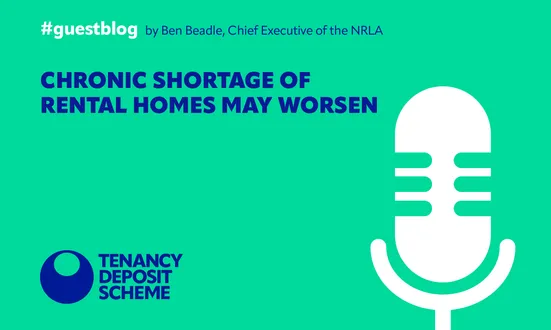Guest Blog by Inventory Hive
Whilst it isn’t essential for all landlords to use a letting agent, many find it makes life in the private rental sector a great deal easier. But agents aren’t all made equal. What should landlords look for when choosing a letting agent to manage their property – and what should they avoid?
With roughly 22,000 letting agents to choose from in the UK, creating a shortlist shouldn’t be difficult – but where do you start?
Here, Inventory Hive look at six must-have features of a good letting agent:
- Local office and knowledge
Firstly, and arguably most important, you should choose an agent within the local area of your property. These agents should have a good working knowledge of the area and an established network. Ideally, they’ll have a list of prospective tenants and will already be advertising locally too. This will give you a head start in attracting good tenants quickly.
- Good reviews and reputation
There may be thousands of letting agents but there are over 2.6 million landlords. These agents are looking after thousands of properties between them. This does mean you’ll have a great community to check in with, though.
Look for reviews from other landlords when putting your shortlist together and check multiple platforms for reviews from tenants too. How they treat their tenants will give you a good idea of how they’ll treat you and yours.
- Professional credentials and memberships
Letting agents are now legally required to be a member of a professional redress scheme to ensure letting agents meet strict compliance criteria. Always make sure you verify an agent’s membership with these schemes; a logo on their website is not always up-to-date or legitimate. These schemes hold letting agents accountable and ensure members work to established standards. They can also help to resolve disputes on your behalf. The Property Ombudsman (TPO) scheme provides a free, fair and independent service to protect consumers from unfair practice. TPO is the only redress scheme that operates codes of practice to raise standards and share best practice in the industry.
Adding to this, a letting agent should have Client Money Protection (CMP) in place. This means your money is safe, and gives you peace of mind that your money is protected if your rent or maintenance funds go missing due to theft or your agent goes bust.
- Savvy marketing and solid vetting
As a landlord, you’ll not only want to get a tenant into your property quickly to avoid costly voids, you’ll also want peace of mind that you’re getting the best tenants – the ones who will pay the rent and look after your property like it was their own. Don’t be afraid to ask your agent how they market their rental properties, how quickly they usually fill a property, how they vet applicants, and what their track record is in terms of landlord satisfaction, loyalty and dispute ratios.
- Legally aware and compliant
Keeping up with property legislation is a minefield but, depending on the level of service you’re paying for from your agent, that up-to-date industry knowledge is what you’re paying for. By choosing an agent who knows the regulations you need to be following and keeps you compliant with everything from deposit protection and EPCs to smoke and carbon monoxide alarms and electrical safety, you can have peace of mind that you and your tenants are protected. Ask them which government-approved deposit protection scheme they use and if they have professional indemnity insurance of their own.
- Excellent record keeping
From check-in reports and inventories to safety checks, repair records, tenant requests, EPCs and alarm tests, your letting agent should be well-organised with a comprehensive process for managing, storing, maintaining and sharing critical information and tenancy records. Ideally, choose a letting agent that keeps all these records in a secure, easily accessible system or app that you can view when needed. For example, the Inventory Hive property reporting platform, which is used by many landlords, letting agents and Inventory Clerk companies, has unlimited property inspection report creation and cloud-based storage, including customisable reports such as Legionella Risk Assessment, HMO Compliance Report; Fire Risk Questionnaire; Fire Risk Assessment Report etc. Also, you can manage all your maintenance issues raised in reports on the Inventory Hive platform.
Make sure you ask your agent about their processes, how they keep on top of maintenance, compliance and repairs, how often they carry out property inspections, and how they maintain records.
Managing a property can be time-consuming. Managing multiple properties is a full-time job, which is why good letting agents are worth their weight in gold. By looking for those agents that tick the boxes above, you’ll be able to sit back and relax while they look after your asset.
Fancy managing your property yourself? Join other landlords and letting agents and download the Inventory Hive app to make your property letting easier. Sign up for your free 30-day trial (no card details required) to create unlimited property inspection reports.
Inventory Hive and TDS work closely together on all things Inventory
Read our free guide on Inventories, check in and check out reports, or reserve your spot on our two expert-led courses in partnership with Inventory Hive.

Inventory Hive is simple cloud-based property reporting and 360° virtual tour software – allowing for market-leading paperless management of inventories, check-ins, interim visits, comparative check-outs, customisable reports, and easy-to-use 360° virtual tour.
Other news stories


